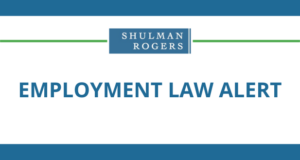
| On Friday, August 23, 2024, the Fifth Circuit issued a decision invalidating the DOL final rule which limited when employers may claim a tip credit, commonly referred to as the 80/20/30 Rule.
As you may know, under the Fair Labor Standards Act employers in most states are permitted to claim a “tip credit” when paying the wages of any tipped employee. The tip credit enables the employer to pay less than the standard minimum wage under the theory that the employee will make at least the regular minimum wage when taking tips into consideration. 2021 Final Rule The DOL promulgated a final rule in 2021 which stated that an employer may only claim a tip credit when the employee is performing “directly tip-producing work” (such as a server taking orders from customers), or when an employee is performing “directly supporting work” (such as setting or bussing tables). However, under this rule, if more than 20% of an employee’s work week was spent on “directly supporting work,” the employer could not claim a tip credit on that excess work. An employer also could not claim a tip credit when “directly supporting work” was performed for more than thirty minutes in a continuous period. Under this rule, an employer could not claim the tip credit for any time spent on work that was not a part of the tipped occupation (such as cleaning restrooms). Final Rule Invalidated The Fifth Circuit Court of Appeals recently held that this final rule conflicts with the FLSA’s clear statutory text, which defines a tipped employee as “any employee engaged in an occupation in which he customarily and regularly receives more than $30 a month in tips.” According to the court, when determining whether they can claim a tip credit, employers no longer must focus on whether the specific duties composing an employee’s given occupation are each individually tip-producing duties. Rather, whether an employer may claim the tip credit for an employee depends on whether the employee, when engaged in their given occupation, customarily and regularly receives more than $30 a month in tips. Takeaway What this probably means is that employers no longer have to worry about closely monitoring the clock to make sure employees don’t spend more than 30 minutes rolling silverware, for example. However, even though the Fifth Circuit has vacated the 80/20/30 rule as a whole, we could envision plaintiffs’ firms arguing that the former 80/20/30 rule is still alive outside of the Fifth Circuit, although that would be an uphill battle for them. There is also always the chance that the DOL will appeal the decision, either for an en banc review or up to the Supreme Court. Moreover, the new administration could soon change things as well. If Trump is elected in November, the DOL could re-implement the regulation, as it had previously proposed it under the last Trump administration. If Harris wins, the DOL could seek to implement a new, narrower definition of who is considered a tipped employee. Employers should still consider that local and state laws and regulations may apply regarding when an employer can claim a tip credit, and some states have their own version of the 80/20/30 rule. |
CONTACT |
MORE INFORMATIONThe contents of this Alert are for informational purposes only and do not constitute legal advice. If you have any questions about this Alert, please contact the Shulman Rogers attorney with whom you regularly work or a member of the Shulman Rogers Employment and Labor Law Group. To receive Employment Law Alerts and other timely news and information from Shulman Rogers, please click HERE to subscribe. |
Stay up to date with all the latest news and events.